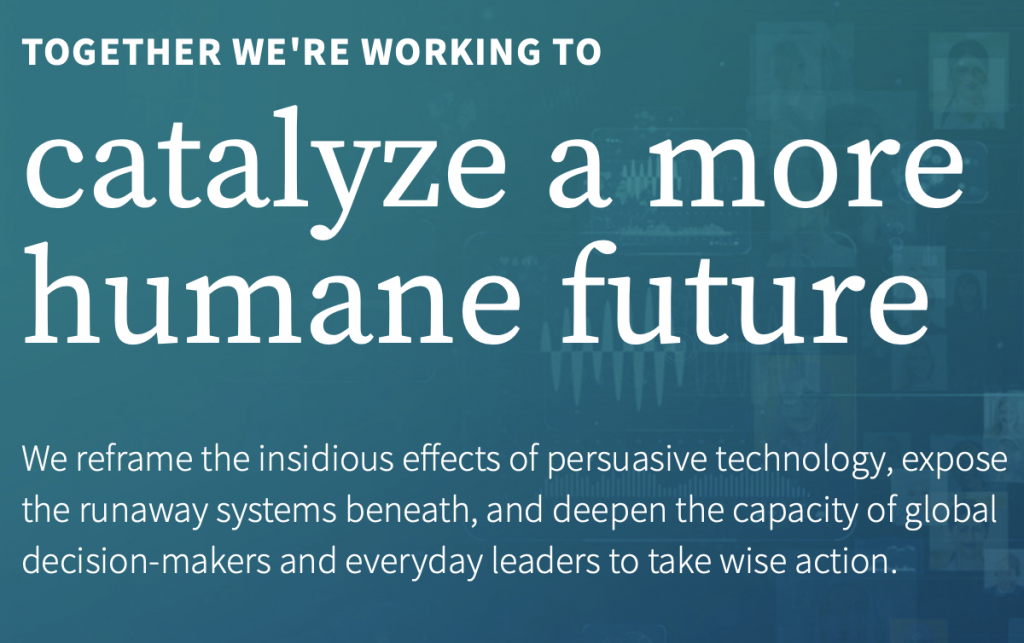
It remains true for me, that I’m a person that can’t not seek some of what is underneath the surface. Often I’ll reference it playfully as the thing under the thing under the thing (which turns out not to be a thing). It’s not parceled and minisculed data that I seek. Rather, it’s more akin to systemic principles and practices of living with things connected and related.
In that spirit I’ve been learning a lot recently from listening to a podcast from The Center for Human Technology. The podcast is called Your Undivided Attention. It is hosted by Tristan Harris and Aza Raskin.
The episode that I listened to yesterday features Francis Haugen, who is among many things, one of the whistle blowers at Facebook. She called out Facebook’s centering of profits over public health and safety. And she did it in a way that calls for learning rather than blame, for commitment to small steps in the right direction rather than outrage, and for an evolution of shared responsibility now rather than a dog pile of vendetta.
One particular aspect from this podcast that sticks with me is the core need to address how human beings globally are now so defaulted to sense making through social media platforms that are steered by algorithms that provoke reaction and polarization rather than curiosity and navigating messy middles. The podcast names that for any of the crises and core challenges of our times (climate change, DEI, energy supply, pandemic, etc), if we can’t count on sense-making together (due to algorithms of polarization found in Facebook and other social media platforms), then we don’t and won’t find our way through the distortions. We steer in the direction of not just divisiveness, but selectively biased information sources to promote that divisiveness.
Yes, it’s a lot. But, returning to the beginning, I’m appreciating the orientation in these Human Technology people to get to the thing under the thing under the thing, so that we might restore alternatives for how we find our way together about the things we care about.
